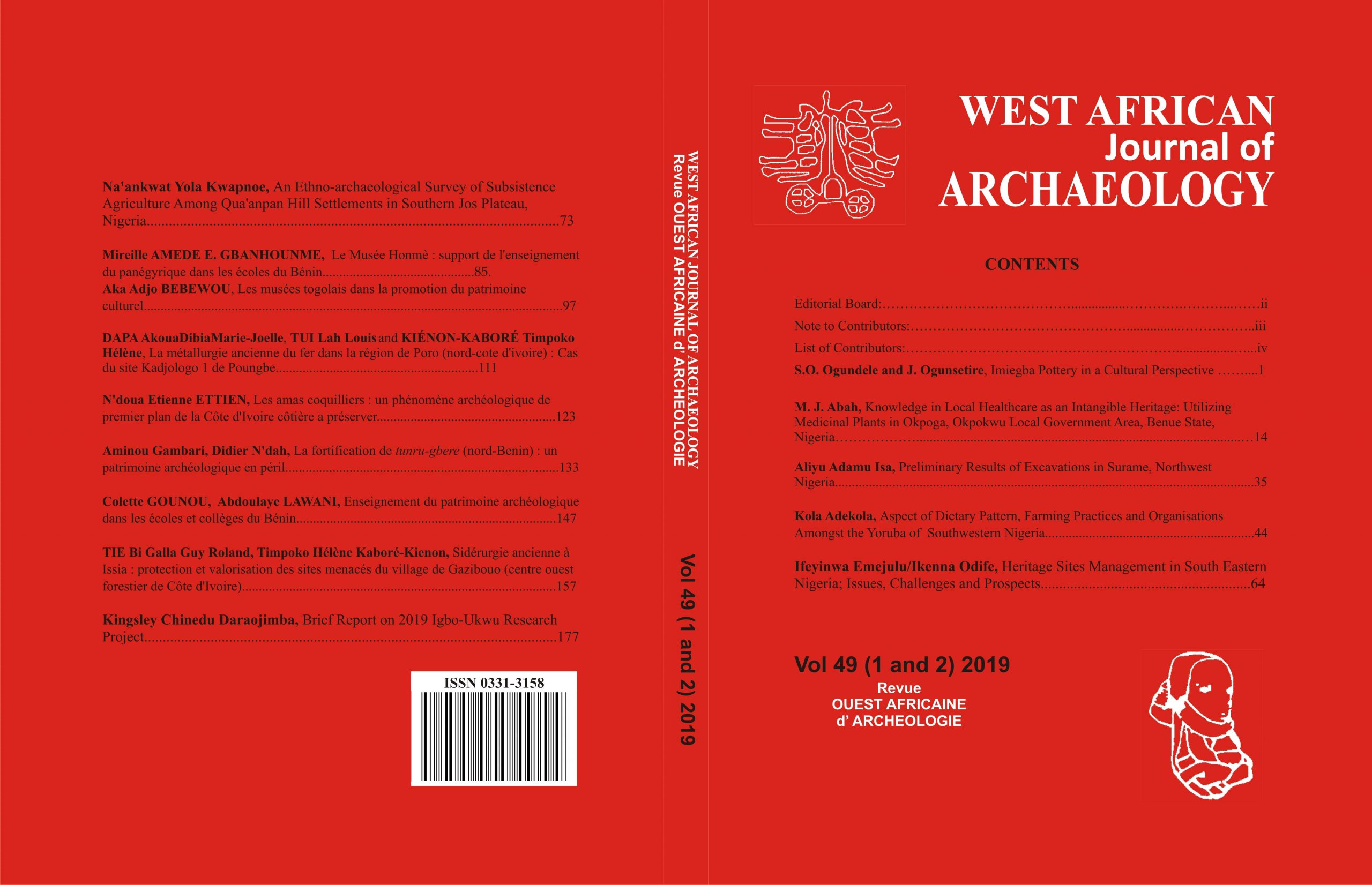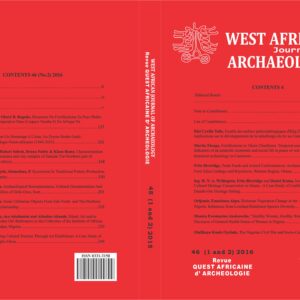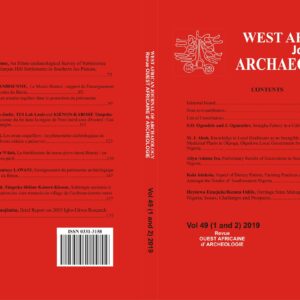-
Archaeological Survey of Nri
$10.00
Preliminary Results of Excavations in Surame, Northwest Nigeria
Preliminary Results of Excavations in Surame, Northwest Nigeria
Aliyu Adamu Isa
Department of Archaeology, Ahmadu Bello University, Zaria-Nigeria.
Email: [email protected]; [email protected]
Abstract
This paper presents a preliminary result of archaeological excavations carried out at
the site of Surame, northwest Nigeria. The excavations of a trench of 2 X 3 metres and
a sqaure of 3 X 3 metres directed at historically identified former residence of the
chief, and palace officials were undertaken, and targeted towards the exposure of
archaeological sequence and recovery of materials that will represent occupation as
fully as possible. The research aims to improve our understanding of ancient
settlements in Nigeria in particular and West Africa in general.
Introduction
Until the decline of the Songhay around 1591AD, often referred to as the “final great
medieval empire of West Africa” (Insoll, 2011: 29), not much in terms of early cultural
achievements is mentioned in the historical record regarding its neighbours such as the
Kebbi polity with its early capital, Surame (see also Gronenborn 2011: 41; Haour
2011: 67). When they are mentioned in historical writings, e.g Palmer (1916); Arnett
(1920); Alkali (1969); and Augi (1984), the authors emphasize political rivalries
amongst various northern Nigeria polities. Although the process of state formation in
Africa had involved complexity of factors including warfare that had relevance in the
making and consolidation of political power and territorial expansion of pre-colonial
states, there is indeed no doubt that, the military factor cannot alone explain the entire
history of any African State such as Kebbi (Aliyu and Shehu, 2017). Thus, the specific
objectives of this project were to identify the traditions of pottery in Surame; and its
role in West Africa’s pre-colonial trading system; as well as to reconstruct the
subsistence economy of the people.




